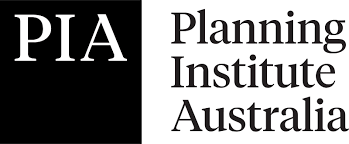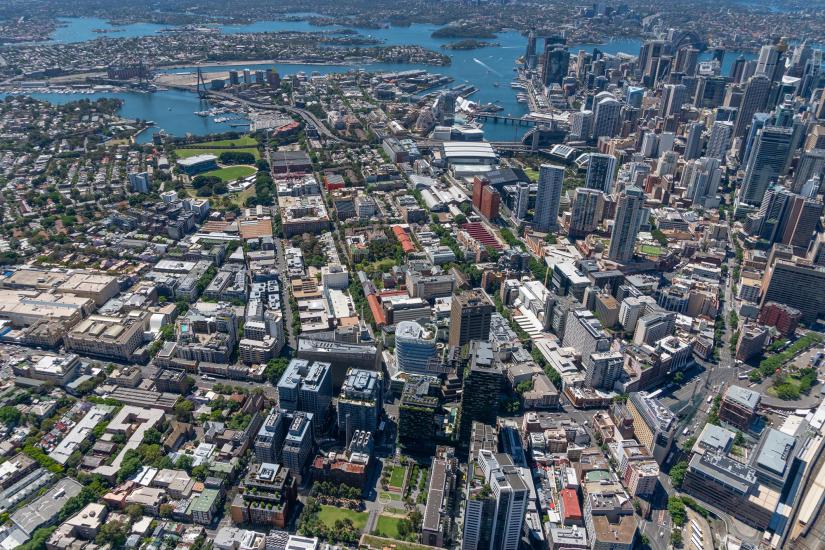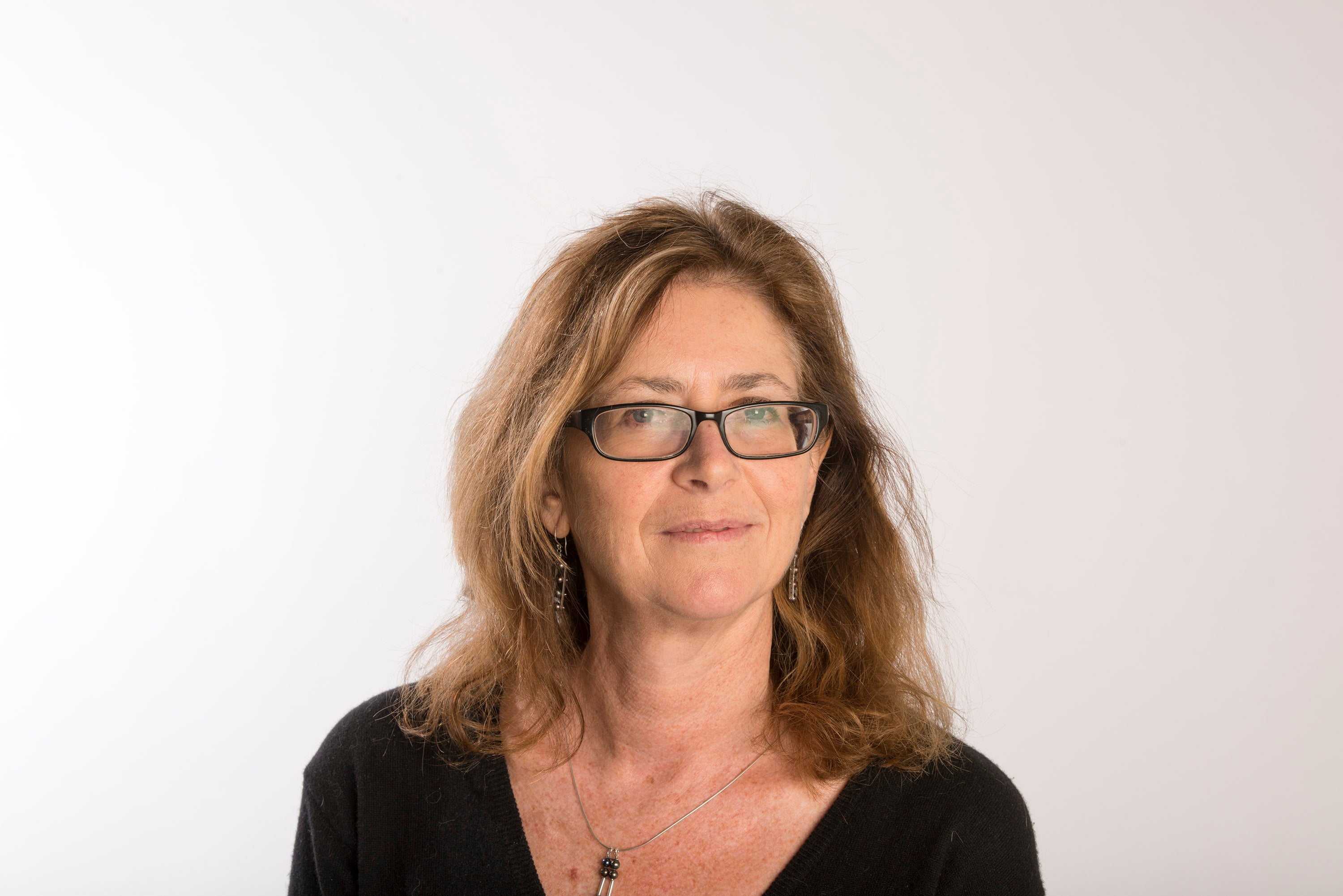Eligibility restrictions apply: only Australian citizens or permanent residents are eligible to apply for this course.
Why study the Master of Urban Planning with UTS Online?
Top 100 University Globally1
Top Performing Young University2
5 star rated for excellence across 8 categories3
5 star rated for student retention4
1QS World University Rankings, 2026. 2THE Young University Rankings, 2024. 3QS Stars Rating 2021-2024. 4Good Universities Guide, 2022.
Create sustainable urban environments
According to the Jobs and Skills Australia Projections, employment in Urban and Regional Planning is projected to grow by 18.6% in the five years leading up to May 2026, which is higher than the national average.1
The UTS Online Master of Urban Planning is designed for professionals who want to develop their knowledge and practical skills to become effective planners with an integrated approach to creating sustainable urban environments. Learn to navigate real-life opportunities and constraints and understand the importance of economic, social, cultural and political contexts when planning for communities.
Delivered 100% online, this course enables you to work full-time while gaining a holistic understanding of the environmental, policy and economic considerations that support strong planning outcomes. Immediately apply what you learn to make a greater impact in your current role and help create sustainable urban environments.
Graduate with an industry-recognised qualification
The UTS Online Master of Urban Planning is accredited by the Planning Institute of Australia (PIA), the national body representing planning and the planning profession, with 5,300 members nationally and internationally.
Who is this course for?
The Master of Urban Planning is suitable for professionals from both planning and non-planning fields, who want to develop their knowledge and practical skills to become effective planners.
Students of this course might come from a range of professional backgrounds, and work in roles such as:
- Project Manager
- Project Officer
- Environmental Scientist
- Environmental Sustainability Advisor
- Field Officer
Please note: This course is only available to Australian citizens and permanent residents. See entry requirements under course information for more eligibility information.
What you will study
The UTS Online’s Master of Urban Planning comprises 15 subjects online subjects (90 credit points (CP) in total).
*Students who complete eight subjects from the masters may be eligible to exit with a Graduate Diploma in Urban Planning.
Complete all of the following subjects:
- Property Development and Planning Process
- Sustainable Urban Development
- Planning & Design Theory and Decision Making
- Urban Design Fundamentals
- Urban Analytics
- Environmental and Social Impact Assessments
- Urban Economics and Infrastructure Planning
- Planning and Environmental Law in Australia
- Local Strategic Planning
- Structure Planning
- Spatial Analysis (GIS)
- Development Negotiation and Community Engagement
- Urban Redevelopment
- Urban Project A
- Urban Project B
- Planning and Urban Professional Practice
Note: Most UTS Online subjects are valued at 6 credit points each. For detailed subject descriptions and further information, please download a course guide.
Flexible course options
The Master of Urban Planning comprises 15 online subjects (90 credit points [CP] in total).
Students who complete the Graduate Certificate in Urban Planning and Design may qualify to advance to the Master of Urban Planning, requiring only 11 additional subjects to complete the Master's degree.
Students who complete 4 subjects (24 CP) from the master's may be eligible to exit with a Graduate Certificate in Urban Planning and Design.
Students who complete 8 subjects (48 CP) from the master's may be eligible to exit with a Graduate Diploma in Urban Planning.
Graduate Certificate
4 Subjects | 8 months
Or continue studying
Master's
+11 Subjects | 30 months
Graduate with a Master's degree
One of our Student Enrolment Advisors can assist you with more information, including alternative pathways.
Gain in-demand skills
The Master of Urban Planning provides a practical approach to urban planning across an array of subject areas. You’ll learn how to apply sustainable planning practices and urban design principles, and develop the analytic skills to create integrated planning solutions. You’ll explore real-world case studies in online workshops that you can apply in a practical setting.
“I think the ability to broker solutions among many competing stakeholders (neighbours, environmental advocates, housing developers, local businesses) and invent new solutions to complex conflicts is one of the top skills planners need. They also need to be able to assemble and analyse different sorts of evidence to weigh up the outcomes of alternate decisions and support a better-informed public debate.”
- Professor Heather MacDonald, Academic in planning and Deputy Dean in the Faculty of Design, Architecture and Building at UTS
Learning outcomes
Shape sustainable and strategic urban development
Analyse the forces that drive land and property markets and evaluate their impact on urban planning proposals. Apply spatial analysis to design planning solutions that enhance liveability, sustainability and economic resilience.
Lead with ethical and future-focused planning
Develop a critical and ethical mindset to navigate complex urban challenges. Apply socially responsible and forward-thinking planning strategies that anticipate and respond to emerging urban, regional and environmental dynamics.
Engage and influence diverse stakeholders
Refine your ability to communicate planning concepts and strategies effectively. Build collaborative relationships with stakeholders from diverse cultural, social and economic backgrounds to drive consensus and support sustainable urban outcomes.
Develop data-driven and innovative planning solutions
Harness analytical tools and planning methodologies to create evidence-based urban strategies. Use cutting-edge research and technology to model urban growth, assess risks and develop solutions that shape the cities of tomorrow.
Course information
Entry requirements
Currently, this course is only accepting applications from Australian citizens or permanent residents.
Applicants must have one of the following:
- Completed Australian bachelor's, bachelor honours degree, or master’s degree, or overseas equivalent
OR
- Completed one of the following UTS qualifications, with a minimum GPA of 5/7
OR
- Completed Australian graduate certificate or graduate diploma, or overseas equivalent, in a related field of study# with a minimum GPA of 5/7 AND A minimum of 3 years full-time, or equivalent part-time, relevant professional work experience#
# Related fields of study and areas of relevant professional work experience include Architecture and Urban Environment, Building Surveying, Building Construction Economics, Valuation, Human Geography, Geomatic Engineering, Environmental Studies, Law, and Economics.
Supporting documentation to be submitted with the application
For applicants who need to demonstrate professional work experience:
- Curriculum Vitae AND Statement of service in one of the following formats:
- A 'Statement of Service' provided by the employer
- A completed 'UTS statement of service’ signed by the employer
- A statutory declaration confirming professional work experience (Australian residents only)
- An official letter from the applicant’s accountant or solicitor, on company letterhead, confirming the applicant’s professional work experience or engagement with the business, duration of operations, and nature of the business
- A business certificate of registration in original language and English (e.g. provision of ASIC documentation or ABN or similar documentation for Australian Businesses)
Eligibility for admission does not guarantee an offer of a place.
Want to check your eligibility?
Not only do we have the right tools and support teams to help you – we have people who care about your success.
Career outcomes
The UTS Online Master of Urban Planning equips professionals with the expertise to shape sustainable, liveable and inclusive cities. This course is designed for those passionate about driving urban innovation, influencing policy and leading complex development projects.
Upon completion, graduates can pursue a range of career opportunities, including:
- Urban Planner
- Strategic Planner
- Development Assessment Officer
- Urban Design Consultant
- Environmental Planner
- Policy Advisor
Start strong at $85,000–$105,000
Urban Planners in Australia earn between $85,000 and $105,000, with strong earning potential as professionals gain experience and take on advanced roles. For graduates with a Master’s degree and relevant work experience, this represents a solid foundation for a rewarding, high-growth career in urban planning.
(Planning Institute of Australia)
Significant growth in urban planning roles
The number of Urban and Regional Planners in Australia has continued to climb, with over 19,000 professionals employed nationwide. Employment is projected to grow by around 8% from 2023 to 2028, highlighting ongoing demand as cities and infrastructure expand.
(Jobs and Skills Australia)
1,400
Annual employment growth
Urban and Regional Planning in Australia has seen annual employment growth of 1,400 positions, underscoring expanding opportunities in the sector.
(Jobs and Skills Australia)
Upcoming intakes
UTS Online courses have 6 intakes per year. The diagram below shows all upcoming intakes. Our next intake is highlighted below.
-
Jan
2026 -
Mar
2026 -
May
2026 -
Jun
2026 -
Aug
2026 -
Oct
2026
Meet our Course Director
Mukesh is an architect, urban planner, and educator whose interdisciplinary work spans urban planning, geographic information systems (GIS), remote sensing, and environmental sustainability. He brings extensive experience in academic and professional roles, combining expertise in computational GIS, remote sensing, and urban analytics to address pressing urban and regional issues.
With a strong focus on evidence-based strategies, Mukesh’s research explores sustainable planning solutions for urban growth, land use transformation, and mitigating urban heat island effects. As an educator at the University of Technology Sydney, Mukesh guides students to critically assess and navigate complex urban issues through a robust understanding of spatial analysis, urban analytics and planning research methods. His teaching is deeply informed by his research and professional planning experience, fostering future planners and designers equipped to implement sustainable and socially conscious planning solutions.
Mukesh Ray
Course Director, Master of Urban Planning
Download your course guide
Download a course guide to explore detailed subject descriptions, entry requirements, pathway options and fee information.
Frequently asked questions
Currently, this course is open to domestic students only. To be eligible, you must be an Australian citizen or an Australian permanent resident.
Yes, the Master of Urban Planning is designed for aspiring professionals who want to develop the knowledge and practical skills needed to become effective planners. This program equips you to create sustainable urban environments and make a meaningful impact.
If you have no formal qualification but a minimum of 3-5 years of relevant work experience, you may be eligible for admission to the Graduate Certificate in Urban Planning and Design. The Graduate Certificate is a foundation course that provides a pathway to studying the Master of Urban Planning. Learn more here.
Yes, you can still apply for the Master of Urban Planning with a degree in a non-related field. However, it’s recommended to start with the Graduate Certificate in Urban Planning and Design, where you’ll study the first four subjects of the master’s program. Successful completion of the Graduate Certificate provides a pathway to the Master of Urban Planning.
Yes, if you prefer on-campus learning, you can explore the Master of Planning, delivered at the UTS Ultimo campus in NSW. This program offers a traditional classroom experience with the same rigorous curriculum.
At UTS Online, your success is our priority, and that doesn't change when you study remotely. We're committed to providing you with a comprehensive range of student support services, guiding you from enrolment right through to graduation.
As a UTS student, you'll enjoy access to an array of support services, including:
-
Your own dedicated Student Success Advisor, available to answer any course-related questions you may have to keep you on track
-
UTS Career Hub for work experience and networking opportunities
-
Assignment writing and academic support from teachers & lecturers
-
Public speaking and peer learning support
-
Confidential medical and mental health services.
Connect with us to learn more about how we support your success while studying for a Master of Urban Planning at UTS Online.
A Master’s in Urban Planning can be worthwhile for people who want to influence how cities grow, address housing challenges, shape transport systems or respond to climate and environmental pressures. It helps build skills in strategic planning, policy, spatial analysis, community engagement and urban design, which are increasingly relevant as cities become more complex.
The UTS Online Master of Urban Planning is an example of a postgraduate option that develops these capabilities, providing a structured pathway for those wanting to contribute to planning work across government, consulting and the private sector.
Yes. Urban planning is in demand across Australia due to rapid population growth, housing shortages, infrastructure expansion and the need for more climate-resilient and sustainable communities. Organisations are seeking planners who can balance environmental, social and economic needs while managing planning frameworks and regulatory processes.
A master in urban planning, such as the UTS Online Master of Urban Planning, can help people gain skills in contemporary planning issues, including strategic development, digital planning tools and sustainability.
A master in urban planning typically takes around two years part-time when studied online, depending on the structure of the university’s program and the required number of subjects. People already working in built-environment fields, such as construction, surveying, or property, often choose part-time or flexible online options so they can build planning knowledge while continuing their careers, as their workload can fluctuate based on project cycles.
The UTS Online Master of Urban Planning follows a flexible part-time structure, allowing students to complete the qualification in a manageable timeframe while working.
The best urban planning course is one that teaches planning theory, spatial analysis, policy, regulation, sustainability and community engagement, while also offering recognised accreditation. Courses that provide analytical tools and insight into how planning systems operate tend to be most useful for professional practice.
The UTS Online Master of Urban Planning includes these core areas and is accredited by the Planning Institute of Australia, offering a recognised pathway for those seeking a professional urban planning qualification.
To become an urban planner in Australia, you generally need a planning-related qualification, ideally one accredited by the Planning Institute of Australia. Many planners come from backgrounds such as architecture, geography, environmental studies, engineering or public policy before completing a planning qualification. Skills in regulation, spatial analysis, stakeholder engagement and strategic planning are essential.
The UTS Online Master of Urban Planning satisfies PIA accreditation requirements and provides a recognised pathway into planning roles across government and industry.
Urban planning can suit introverts because it involves a significant amount of independent analytical work, such as research, mapping, modelling, spatial analysis, policy review and report writing. These tasks allow for deep focus and structured problem-solving. While engagement with communities and stakeholders is part of the role, much of the work is reflective and analysis-driven.
The UTS Online Master of Urban Planning also helps learners build communication and stakeholder skills so they can participate confidently in collaborative planning environments.
An architect focuses on building design, working at the scale of individual structures to create functional and aesthetic spaces. An urban planner works at a broader scale, neighbourhoods, districts or entire cities, focusing on land use, policy, infrastructure, transport, environment and long-term community outcomes. While architects design buildings, planners design the systems and frameworks that shape how cities function.
The UTS Online Master of Urban Planning centres on spatial planning, policy, regulation and strategic development rather than architectural design.
Assignments in our subjects are authentic and relevant. They vary according to the subject and include, but are not limited to, posters, online quizzes and vivas (oral assessment), podcasts, recorded presentations, education tools, proposals, protocols and professional portfolios. You will be required to complete exams for a few of the subjects in the course or related certifications. There are also group assignments as part of the assessments to graduate with a Master of Urban Planning.
When studying the Master of Urban Planning, your online study experience includes:
-
Tools for understanding urban design and sustainability principles
-
Modules tailored for flexible, part-time learning
-
Peer collaboration and academic support
Here’s a video example showcasing key features of our online learning platform, including tools designed to enhance your study experience.
For practical tips on balancing your studies with work and life, click here to learn how to achieve your goals. Remember, our team is just an email or call away to support you every step of the way.














